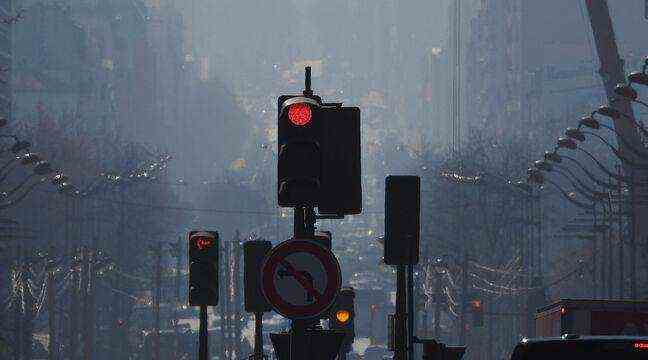During a day of peak pollution, here in Paris. (drawing). – HOUPLINE-FOX / SIPA
- A dozen Toulouse researchers from five university laboratories are launching a major survey on the quality of outdoor air among the general public.
- The questionnaire addresses the daily habits of the population in the event of a pollution peak, in particular.
- The objective of this study is to make proposals, in particular to the public authorities, in particular to improve communication and representations on air quality.
“The air quality will be bad tomorrow, a peak in fine particle pollution is expected, the information threshold will be triggered.” These advertisements appear regularly on our television screens or on online news sites. Prevention messages which sometimes result in the implementation of measures, such as alternating traffic in large cities. But it is still difficult to know if these alerts have an impact on the actions of citizens.
To find out, around ten Toulouse researchers from five different laboratories have just launched a survey of the general public, baptized ESPAIR.
#investigation #survey #air quality
We need your help to participate in the ESPAIR survey!
Take an online air quality questionnaire:
➡️ https://t.co/5X56CfGXTm
Thanks for your help 🙂
➡️ https://t.co/iCw4QAV3t0– GIS BECO Baby, early childhood in COntextes (@ BECO_UT2J) April 12, 2021
From the daily ventilation of the home to the means of transport used, a series of questions should allow these scientists to better understand the impact of the quality of the outdoor air, in particular on daily living habits or the health of young people. children.
Fight against preconceived ideas
“We ask citizens if they know the air quality indicators, if they are interested, how they find out. In large cities, we will know that there will be a peak because there will be an impact on vehicle traffic, but elsewhere? Some people who live in rural areas have no representation of air quality at all, while they are confronted with pollution from pesticides, they believe themselves to be safe when they are not ”, Explain
Chantal Zaouche Gaaudron, study coordinator and head of the Bébé, petite Enfance en Contextes scientific interest group (BECO).
The analysis of this questionnaire should make it possible to make proposals to the public authorities, in particular on the content of their messages in the event of a pollution peak, on the best way to fight against preconceived ideas, in particular with parents. When the air quality is bad, there is no need in Toulouse, for example, to take a stroll along the Canal du Midi with your stroller, the air is just as poor as elsewhere.

